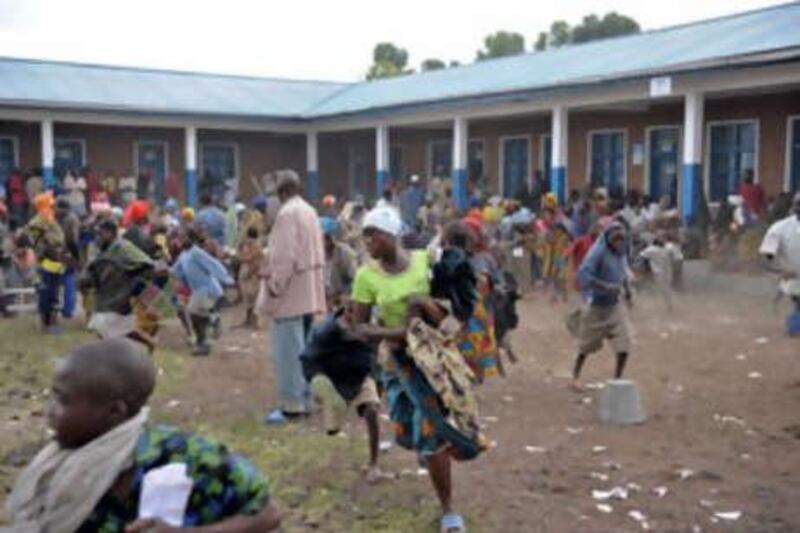Britain's Africa minister said today that the UK could send troops to Congo if a fragile cease-fire between rebel fighters and the army fails. The foreign ministers of France and Britain flew into Democratic Republic of Congo today on an EU mission to try to secure peace in the east and help tens of thousands of civilians fleeing conflict. Mark Malloch-Brown said Britain has a contingency plan to deploy forces to bolster the efforts of United Nations peacekeepers if violence escalates. Mr Malloch-Brown told BBC radio that, though a diplomatic solution to the conflict is the priority, plans have been drafted for the deployment of a European Union force comprised of British troops. "We have certainly got to have it as an option which is developed and on the table if we need it," Mr Malloch-Brown said. "The first line of call on this should be the deployment of the UN's own troops from elsewhere in the country," he said. "But we have got to have plans. If everything else fails we cannot stand back and watch violence erupt." He said Britain is currently the EU's standby country to contribute forces for peacekeeping missions. The French foreign minister Bernard Kouchner and British foreign secretary David Miliband were due to meet the Congolese president Joseph Kabila in Kinshasa and travel to the eastern city of Goma, threatened by an offensive by Tutsi rebels this week.
The attacks by fighters loyal to the rebel leader, General Laurent Nkunda, and subsequent killings and looting by Congolese army troops have driven thousands of families from their homes in North Kivu province on the border with Rwanda. Fearing more violence, the displaced civilians are seeking shelter, water and food in what aid workers are calling a catastrophic humanitarian situation. Three days ago, Gen Nkunda declared a ceasefire after his rebels fought to the gates of Goma, forcing back Congo's army and UN peacekeepers. UN officials have said the truce is fragile.
Mr Kouchner, whose country holds the rotating European Union presidency, and Mr Miliband are due to look at the possibility of an EU humanitarian airlift into North Kivu that could be protected by EU troops on the ground. The two European ministers will later travel from Congo to neighbouring Rwanda for talks with President Paul Kagame. Congo and Rwanda have accused each other of backing rebel groups involved in the eastern Congo violence.
At talks in Kinshasa and Kigali, the the EU development and humanitarian aid commissioner Louis Michel obtained the agreement of Mr Kabila and Mr Kagame yesterday to meet at a summit to discuss the conflict. The UN, EU and the United States have been urgently lobbying the two leaders to make a lasting peace deal that will end any support for insurgent groups and pacify the violence-plagued region.
The UN said the Tanzanian president Jakaya Kikwete, who is the African Union chairman, and the AU Commission chief Jean Ping had proposed in telephone talks with the UN secretary-general Ban Ki-moon that a regional summit should be held over the conflict. Gen Nkunda, who says he is fighting to defend the Tutsi minority in Congo's east, abandoned a January peace deal and has called for a neutral mediator to negotiate.
An estimated one million people have been forced from their homes in North Kivu by two years of violence that has persisted despite the end of a 1998-2003 war in the vast, former Belgian colony, which is rich in copper, cobalt, gold and diamonds. The world's largest UN peacekeeping force, 17,000-strong, is deployed in Congo, but has been badly stretched by rebel and militia violence on several fronts and was not able to halt Gen Nkunda's rapid advance on Goma.
*Reuters





